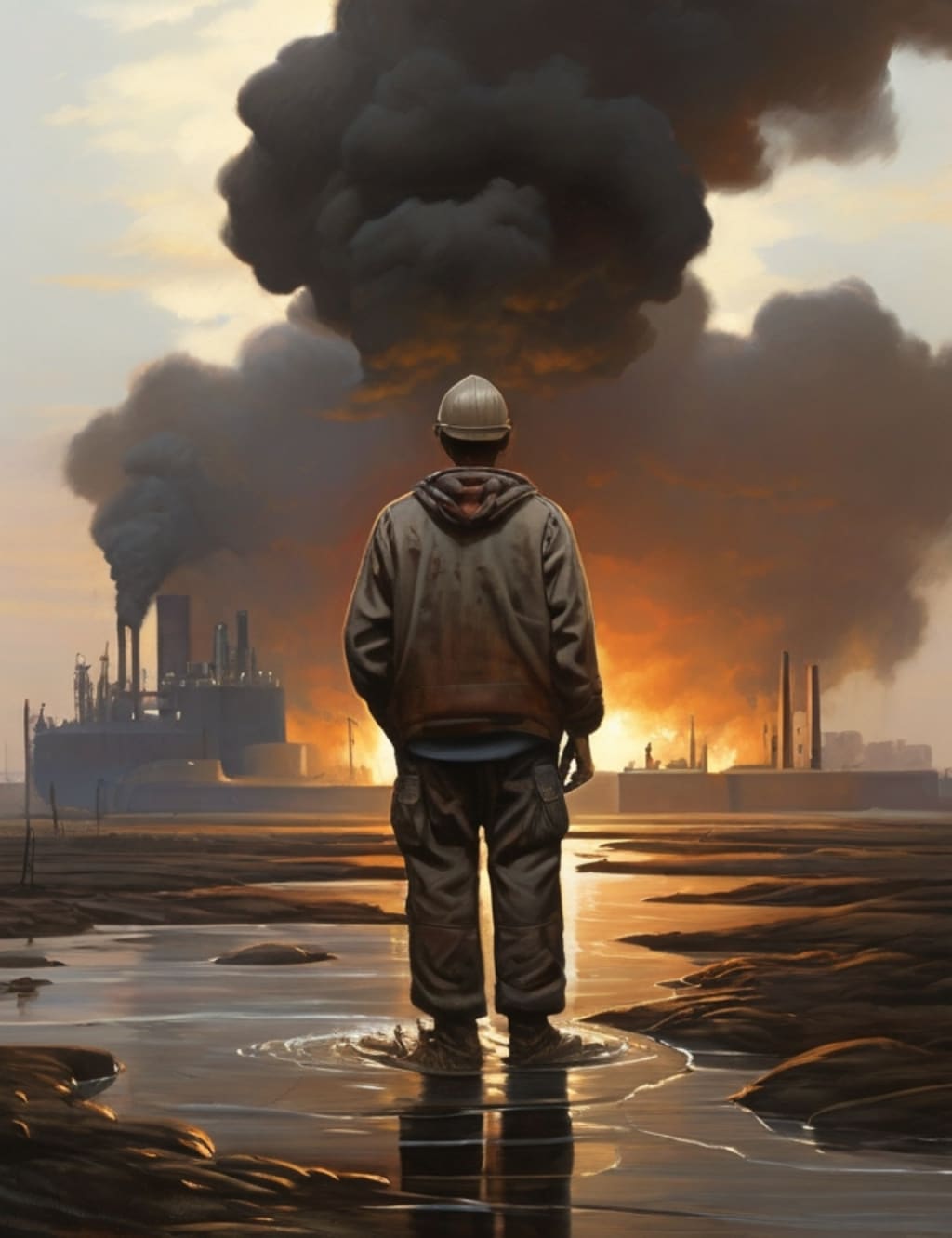The Success and perils of short-sighted exploitation
Navigating the Turbulent Waters of Crude Oil: A Journey of Triumph and Tragedy

In the vast tapestry of human history, few substances have left as indelible a mark as crude oil. Its discovery in the 19th century sparked a revolution in energy, propelling nations into an era of unprecedented industrialization and prosperity. From powering factories to propelling vehicles, oil became the lifeblood of economies, transforming societies, and lifting millions out of poverty. Yet, beneath its surface of progress, crude oil's story is one of contradictions and complexities that have shaped modern civilization in profound ways.
At the dawn of the oil age, its potential for progress seemed boundless. The industrial revolution, fueled by oil's abundant energy, ushered in an era of unprecedented growth and technological advancement. It powered the machinery of progress, driving innovation, and expanding the horizons of human achievement. However, alongside these triumphs came the shadows of destruction, as early warnings about the environmental consequences of burning fossil fuels went unheeded.
Visionaries like Eunice Foote, a pioneering scientist of the 19th century, sounded the alarm about the dangers of carbon emissions, anticipating the looming specter of climate change. Despite these warnings, the world's thirst for oil remained insatiable, leading to a global dependence on fossil fuels that would have far-reaching consequences for the planet. The story of oil is also one of geopolitical maneuvering and exploitation, as colonial powers and multinational corporations vied for control of valuable oil reserves.
Nowhere is this more evident than in regions like the Niger Delta, where oil has been both a blessing and a curse. Promises of economic prosperity gave way to environmental devastation and social unrest, as wealth from oil revenues enriched the few at the expense of the many. Nigeria, once hopeful for the promise of oil wealth, found itself ensnared in the grip of the resource curse, with corruption and mismanagement siphoning away the benefits of oil revenues.
The Niger Delta, once a thriving ecosystem, became a landscape scarred by oil spills and toxic contamination, robbing future generations of their inheritance. As the world grapples with the existential threat of climate change, the narrative of oil is undergoing a reckoning. Calls for a transition to renewable energy sources are growing louder, challenging the status quo of fossil fuel dominance.
The Paris Climate Accord and the push for net-zero emissions signal a collective recognition of the need for change, yet the path forward remains fraught with challenges. Developing nations, burdened by the legacies of colonial exploitation and economic disparity, demand equity in the transition to a sustainable future. The debate over climate finance and technology transfer underscores the imperative of global cooperation in addressing the climate crisis.
In the face of mounting challenges posed by the pervasive use of crude oil and the urgent need for sustainability, there is a beacon of optimism shining bright on the horizon. This optimism stems from the incredible advancements in technology and the rise of renewable energy solutions that promise to revolutionize the way we power our world.
Technological innovations have paved the way for a host of renewable energy sources that offer clean, sustainable alternatives to fossil fuels. Wind and solar power, in particular, have emerged as frontrunners in the quest for renewable energy. With advancements in solar panel efficiency and wind turbine technology, harnessing the power of nature's elements has become more efficient and cost-effective than ever before.
Solar power, derived from the sun's abundant energy, holds immense promise for powering homes, businesses, and entire communities. As solar panel technology continues to improve, we are witnessing a surge in rooftop solar installations and utility-scale solar farms around the world. These installations not only reduce reliance on fossil fuels but also contribute to lower energy costs and greater energy independence for consumers.
The story of crude oil is a cautionary tale of the perils of short-sighted exploitation and the imperative of collective action. As the world stands at a crossroads, the choices we make today will shape the destiny of future generations. In the balance between progress and preservation lies the promise of a better tomorrow.
About the Creator
Christopher Ezeh
As a dedicated writer, I specialize in crafting insightful articles and life-inspiring stories. My passion for storytelling and music drives me to explore boundless creativity. Join me as I delve into the depths of human experience.
Thanks.
Enjoyed the story? Support the Creator.
Subscribe for free to receive all their stories in your feed. You could also pledge your support or give them a one-off tip, letting them know you appreciate their work.






Comments
There are no comments for this story
Be the first to respond and start the conversation.